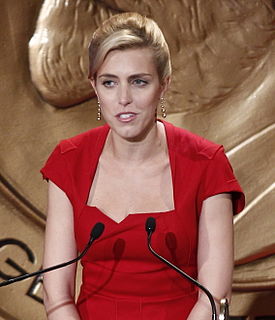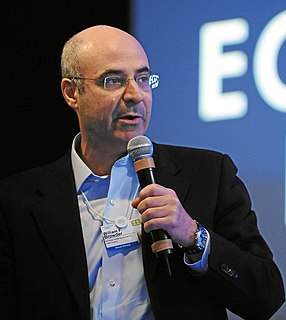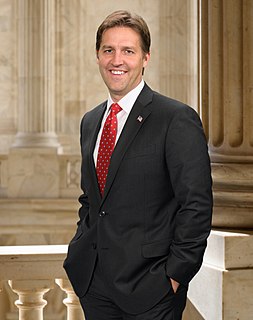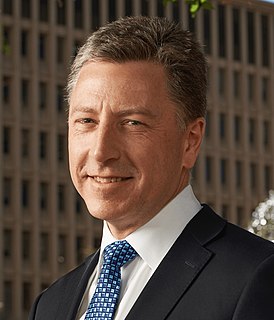A Quote by Kimberly Zisk Marten
Russia has the ability to control Ukraine's economic future because of the natural gas pipeline link. And as a result, that means that Russia has just all along been in a stronger bargaining position.
Related Quotes
In the context of Russia's invasion of Ukraine and a still-stagnant economy, President Barack Obama faces two important questions on energy transmission: a decision on the construction of the Keystone XL oil pipeline and the question of increasing American natural gas exports. These are choices that will resonate from Crimea to Cove Point.
If [Western] relations with Russia are to be friendly, they must be open and sincere, otherwise there can be no friendship at all. That means one should be able to speak openly about everything at meetings and conferences. It shouldn't be that we can't discuss the killing of journalists in Russia, or the suppression of human rights, or all the warning signs surfacing in Russia because of oil and gas or other economic reasons. It's a big problem, but it's the same in Western relations with Arab states.
we are dealing with a return to what might be a far more normal relationship between the West and Russia. Russia is what it is that we see. It's not dressed up in its birthday costume. It is what it is. It regards its national interests as important enough to fight for. And the difference on the whole Ukraine situation is that the Russians are prepared to fight for their position on Ukraine, and the West is not.
The attitude of the West and of Russia towards a crisis like Ukraine is diametrically different. The West is trying to establish the legality of any established border. For Russia, Ukraine is part of the Russian patrimony. A Russian state was created around Kiev about 1,200 years ago. Ukraine itself has been part of Russia for 500 years, and I would say most Russians consider it part of Russian patrimony. The ideal solution would be to have a Ukraine like Finland or Austria that can be a bridge between these two rather than an outpost.
Putin described Kiev is the mother of Russian cities. These - the Russian people view Ukraine as an extension of Russia. And so there is a sense that Putin really will do whatever it takes, even in the face of overwhelming, diplomatic, and economic pressure to defend what he sees as Russia's vital interest. And I think when we're trying to understand what's going on in Ukraine we have to keep that in mind. This isn't a simple case of Putin agitating for a fight.
Well, I mean, Russia was responsible for shooting down MH17. Russia was responsible for invading Ukraine. Russia is responsible for taking away the chemical weapons in Syria that they didn't take away. Russia was responsible for having honest athletes in the Olympics when they did the whole doping program.
If anything good is going to emerge out of this, it's going to be the result of an acceptable modus vivendi between Ukraine and Russia. The two of them will have to get together at some point. It is going to be a result that many people in the West will not like, because Russia, as the bigger power, is going to get the better of the deal. So, a lot of people will say, that's appeasement. That's this - that - it's reality.
I don't understand what the president's [Donald Trump] position is on Russia. But I can tell you what my position is on Russia: Russia is a great danger to a lot of its neighbors, and [Vladimir] Putin has as one of his core objectives fracturing NATO, which is one of the greatest military alliances in the history of the world.
Putin discovered that when he invaded Ukraine, he expected the Ukrainians to rise up and join him and say, "Yes, we want to be part of Russia," and that didn't happen. And they've been paying, actually, I think quite a high price for it, both in the ongoing war in Ukraine - which is I think increasingly unpopular in Russia - and also in the Western sanctions, and in general, the separation from the West that was caused by that.
Putin imagined it would be different. So, like many Russian leaders before him, he imagined that Ukraine was basically Russia, but they speak with a funny accent. Actually, it's not Russia; it has a different identity. It has a very different language. Russians don't automatically understand Ukrainian. And, in particular, the way Ukraine has developed over the last two decades is different from the way Russia has developed.
The EU remains our dream. We must not give it up. Otherwise Putin would win. His goal is to undermine the EU. This is not only about a conflict between Russia and Ukraine. Russia is fighting against the West and its values. Therefore, the European project of Ukraine must not fail. We know that this aim requires successful reforms in Ukraine, even if they hurt now.





























